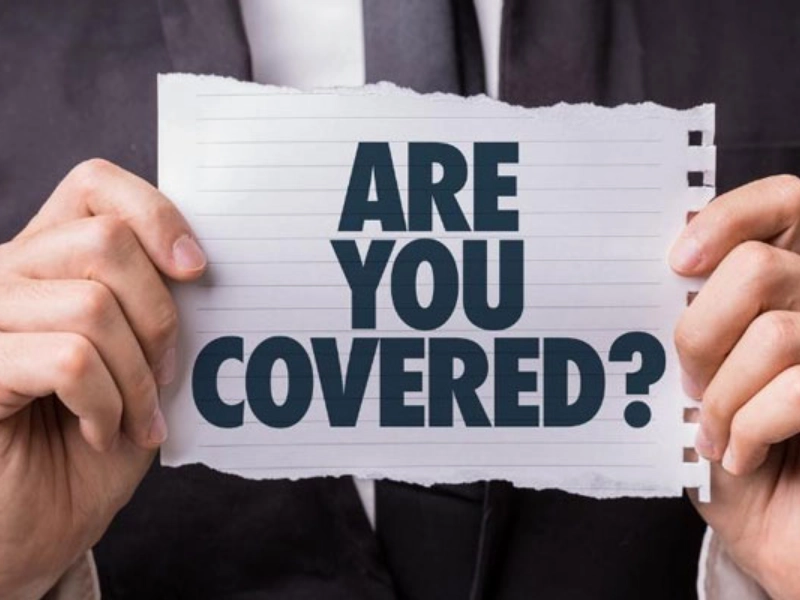Managing Medical Bills: How Payment Plans Work and What to Expect
If you just got treatment or have surgery soon, you might be worried about how you will pay your medical bills. Paying the amount promptly and moving on is preferable. Consider a payment plan for large medical bills. Find out everything about how to pay your medical bills so you can keep your money in order.

Advertisement
Check for errors:If you want to be sure your bill is correct, read it from beginning to end and look for costs that don't make sense or charges that are listed more than once. It's a good idea to look over your treatment record, medical bill, and insurance company's description of benefits to ensure that all of the information matches up. Watch for surprise medical billing:During a medical emergency, you might need to go to a hospital or doctor that is not part of the network that your insurance company has a deal with. In this case, your insurance company won't pay the costs you think the policy covers. One other option is to use the price difference. This is what people often call "surprise medical billing."The Fairness in Customer Pricing Act protects customers from unfair pricing tactics, which is a great thing. You might be able to get the information you need about the court system from the Centers for Medicare &'' Medicaid Services.Work with the hospital or health care provider to get medical bills reduced:If you work together, you can get hospitals and other places that provide medical services to lower the cost of your care. Here are three essential things to keep in mind: You can check prices for the same service offered by different companies in your area by picking up the phone, emailing, or calling your insurance company. If you are being charged more than what was agreed upon, you can talk to the person charging you about lowering the price.
If you can pay your hospital bill in full, you should ask for a discount on the amount you still have to pay. You could get a deal if you offer to pay the total amount in a shorter time, like 30 or 60 days. Ask for financial help or for your medical costs to be lowered or waived: Your local hospital may provide "charity care" if you don't have health insurance or can't pay your costs. It's for uninsured people. Show tax documents and other financial difficulties.Request a medical bill payment plan:Many medical offices and hospitals offer payment plans to help people deal with the stress that can come from the high costs of getting the medical care they need. People with low means can also get a particular savings account that fits their needs and pays no interest. Ensure you know everything about the plan's costs and have written proof from the possible service provider that they agreed to pay those costs.
 Hospitals' Medical Bill Assistance:
Hospitals and other healthcare providers often offer patients individualized payment plans to ease the financial burden of treatment. According to Experian Health, this is a growing problem at a variety of facilities, and it might affect as many as one in five unpaid patient balances. The hospital may be able to provide additional funding if you are having problems meeting the terms of your existing payment plan.
Ask for a Workable Repayment Plan:Your healthcare provider may also work with you to lower the amount of money you owe to a level that is easier to deal with. (Before you ask, you should try to predict a regular number that considers your income and set costs.) The National Foundation for Credit Counseling's research shows that many companies give their customers the option of taking part in interest-free or low-interest payment plans.People who can pay for their medical bills in total are more likely to save money if they pay in cash or by check instead of with a credit card. The service provider will get paid quickly, and the costs usually involved with processing credit cards will also go away.How Much Must I Pay Toward My Medical Debt Each Month?The government does not make people with medical debt pay a minimum amount as part of a required scheme. You and the billing staff of your healthcare provider can talk about the amount of the minimum payment you have to make each month. Your payment should be substantial enough that you may both eliminate the debt in a reasonable length of time and continue to meet your regular financial obligations. This is the best thing to happen. You should also say that the bills department should either stop adding interest to your account or lower the interest rate if that's not possible.How Much Must I Pay Toward My Medical Bills Each Month?
Medical fees can sometimes be negotiated before treatment, except for care needed quickly or unexpectedly. Find out how much the treatment will cost from the service provider. If you can't pay for it, feel free to say so; you never know if they will be willing to work with you to lower the price. You can either go to a website like Healthcare Bluebook or call them to find out how much other service providers in your area charge for the service.Conclusion:Even though medical bills can add up quickly, you still have several ways to deal with the debt they cause. You or a family member mustn't let worries about how much care will cost stop you from getting help when needed. The fact that you have to pay for health care is a problem, but it's not a disaster.
Hospitals' Medical Bill Assistance:
Hospitals and other healthcare providers often offer patients individualized payment plans to ease the financial burden of treatment. According to Experian Health, this is a growing problem at a variety of facilities, and it might affect as many as one in five unpaid patient balances. The hospital may be able to provide additional funding if you are having problems meeting the terms of your existing payment plan.
Ask for a Workable Repayment Plan:Your healthcare provider may also work with you to lower the amount of money you owe to a level that is easier to deal with. (Before you ask, you should try to predict a regular number that considers your income and set costs.) The National Foundation for Credit Counseling's research shows that many companies give their customers the option of taking part in interest-free or low-interest payment plans.People who can pay for their medical bills in total are more likely to save money if they pay in cash or by check instead of with a credit card. The service provider will get paid quickly, and the costs usually involved with processing credit cards will also go away.How Much Must I Pay Toward My Medical Debt Each Month?The government does not make people with medical debt pay a minimum amount as part of a required scheme. You and the billing staff of your healthcare provider can talk about the amount of the minimum payment you have to make each month. Your payment should be substantial enough that you may both eliminate the debt in a reasonable length of time and continue to meet your regular financial obligations. This is the best thing to happen. You should also say that the bills department should either stop adding interest to your account or lower the interest rate if that's not possible.How Much Must I Pay Toward My Medical Bills Each Month?
Medical fees can sometimes be negotiated before treatment, except for care needed quickly or unexpectedly. Find out how much the treatment will cost from the service provider. If you can't pay for it, feel free to say so; you never know if they will be willing to work with you to lower the price. You can either go to a website like Healthcare Bluebook or call them to find out how much other service providers in your area charge for the service.Conclusion:Even though medical bills can add up quickly, you still have several ways to deal with the debt they cause. You or a family member mustn't let worries about how much care will cost stop you from getting help when needed. The fact that you have to pay for health care is a problem, but it's not a disaster.








